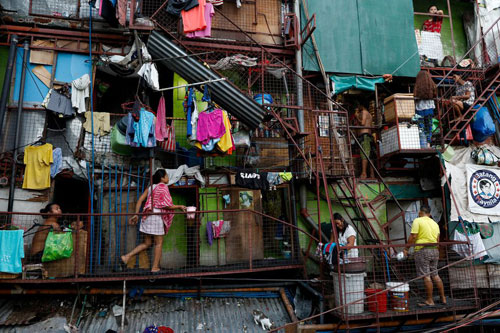The reduction of extreme poverty has halted as more than 70 million people were pushed into extreme poverty by the end of 2020, according to a new World Bank report.
The first year of the pandemic increased the global total to over 700 million. The world’s poorest people bore the steepest costs of the pandemic.
By the end of 2022, as many as 685 million people could still be living in extreme poverty. This would make 2022 the second-worst year for poverty reduction in the past two decades — after 2020.
The dire message comes from the World Bank in a new report, “The COVID-19 pandemic dealt the biggest setback to global poverty in decades.”
The 2022 edition provides the first comprehensive look at the landscape of poverty in the aftermath of COVID-19 and the war in Ukraine — an extraordinary series of shocks to the global economy.
“Global progress in reducing extreme poverty has virtually come to a halt,” it said.
The report has projected that roughly 574 million people, or 7 percent of the world’s population, will struggle in extreme poverty in 2030.
“COVID-19 marked the end of global progress in poverty reduction,” said World Bank President David Malpass. “During the three decades that preceded its arrival, more than 1 billion people escaped extreme poverty.”
By 2015, the global extreme-poverty rate had been cut by more than half. The economic upheavals brought on by COVID-19 and later the war in Ukraine produced an outright reversal in progress.
“Given current trends, 574 million people will still be living on less than US$2.15 a day in 2030, with most in Africa,” Malpass said.
In 2020 alone, the number of people living below the extreme poverty line rose by over 70 million. That is the largest one-year increase since global poverty monitoring began in 1990.
The income losses of the world’s poorest were twice as high as the world’s richest, and global inequality rose for the first time in decades.
The poorest suffered large setbacks in health and education, with devastating consequences, including premature mortality and pronounced learning losses.
These setbacks, if left unaddressed, will have lasting consequences for income prospects in people’s lifetime.
The setbacks occurred when the speed of progress toward poverty reduction was already slowing. In the five years leading up to the pandemic, poverty reduction had slowed.
Before 2020, the world was already significantly off course on the global goal of ending extreme poverty by 2030. The report showed that in 2019 nearly half of the world’s population (47 percent) lives in poverty when this is measured as living on less than US$6.85 a day.
The setbacks call for a major course correction. The World Bank urges that targeted cash transfers instead of broad subsidies should be used to ease the dire situation.
At any rate, half of all spending on energy subsidies in low- and middle-income economies went to the richest 20 percent of the population, who also happen to consume more energy.
Targeted cash transfers are a far more effective mechanism for supporting poor and vulnerable groups: more than 60 percent of spending on cash transfers goes to the bottom 40 percent.
Public spending for long-term growth should be prioritized. COVID-19 has underlined how progress achieved over decades can vanish suddenly. This is why high-return investments in education, research and development, and infrastructure projects should be made now.
Governments also need to improve their preparation for the next crisis. They need to improve the efficiency of their spending. Better procurement processes and incentives for public sector managers can boost both the quality and efficiency of government spending.
Tax revenue measures should not hurt the poor. This can be done by introducing property taxes, broadening the base of personal and corporate income taxes, and reducing regressive tax exemptions.
If indirect taxes need to be raised, their design should minimize economic distortions and should be accompanied with targeted cash transfers protecting the incomes of the most vulnerable households.





